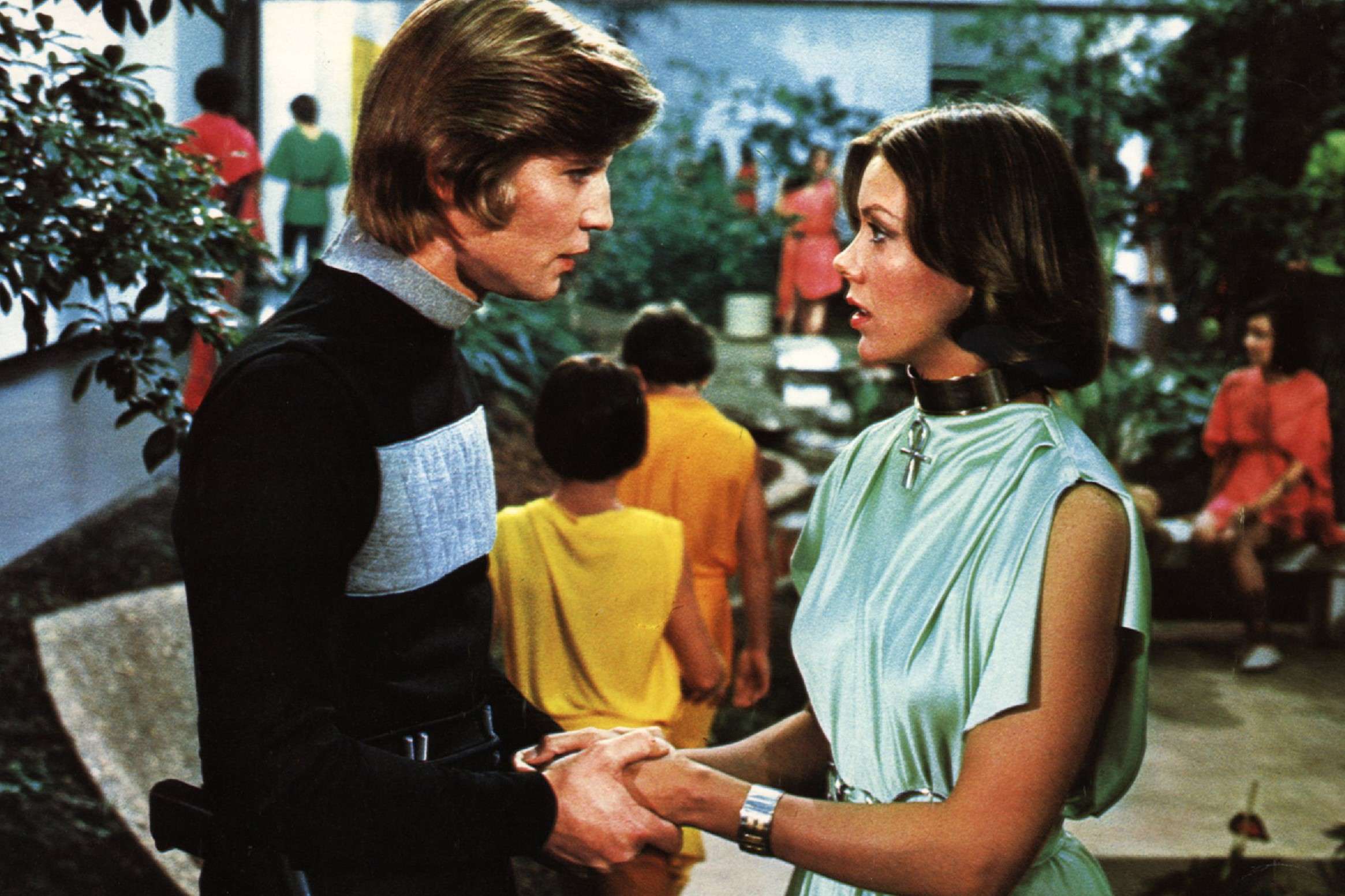Create a free profile to get unlimited access to exclusive videos, sweepstakes, and more!
Prolific sci-fi author, Logan's Run co-writer William F. Nolan dies at 93

William F. Nolan, the prolific and acclaimed sci-fi author best known as the co-writer of the dystopian classic Logan's Run, died last week due to complications from an infection at the age of 93. Nolan's representative Jason V. Brock told The Hollywood Reporter Monday that the author died July 15 after a brief hospital stay.
A native of Kansas City, Missouri, Nolan was born in 1928 and filled his childhood with stories, particularly the genre tales that packed pulp magazines of the period. His voracious appetite for pulps, comic books, and movies meant that, by the time his family relocated to California in the wake of the second World War, Nolan was eager to become more actively involved in the world of fandom. He went in search of Ray Bradbury, a favorite author of his, and eventually made contact. His first book, 1952's Ray Bradbury Review, was essentially an expanded version of a fandom 'zine, a blend of nonfiction essays, stories, and art, some of which Nolan did himself.
Through Bradbury, Nolan became more and more deeply immersed in the genre writing community of the 1950s, eventually joining the collective of writers known as "The Group," which also included eventual Logan's Run co-writer George Clayton Johnson (who died in 2015), Nolan's dear friend Charles Beaumont, and genre luminaries like Richard Matheson.
After his first major fiction sale, “The Darendinger Build-Up," Nolan became a full-time writer, and eventually produced hundreds of short stories, dozens of novels, and more nonfiction pieces on everyone from Bradbury to legendary Western author Max Brand. The story that immortalized him, though, was Logan's Run. A dystopian story about a society in which humans are killed at age 21 (changed to 30 in the film adaptation) to prevent scarcity, it follows the title character, Logan, as he went from a hunter of the people who tried to escape the system to the hunted, as he fought to escape it himself.
First published in 1967, Logan's Run fit right in with the often dark sci-fi of the pre-Star Wars 1970s, and was adapted into a featured film in 1976, starring Michael York as Logan and Jenny Agutter as Jessica. Nolan was nominated for a Hugo Award for Best Dramatic Presentation for the film, though he had little to do with the finished product.
"At first, George suggested we do it as a script, but I said we should do a novel and also do it as a script so we could get double money — as a book and as a screenplay,” Nolan told The Hollywood Reporter earlier this year in celebration of the film's 45th anniversary. “He agreed. We managed to finish the book, after it sold, completed two different adaptations in screenplay format, both of which were purchased for the film but unused. Around that time, George and I decided to part ways regarding Logan. He could do his take and I would do mine. We stayed friends, of course. George did do a thing called Jessica’s Run, but it was never printed, and I did several pieces: Logan’s Search, Logan’s World, Logan’s Return, and a few short stories as well as some nonfiction.”
In addition to his Logan's sequels, Nolan's fiction output included hundreds of short stories and several more novels, including his Sam Space series. He also worked steadily as a screenwriter in the 1970s and 1980s, producing works like the legendary TV movie nightmare fuel Trilogy of Terror, the horror film Burnt Offerings, and the Jack the Ripper time travel mystery Terror at London Bridge. He was honored with a Bram Stoker Lifetime Achievement Award by the Horror Writers Association in 2010.
Though he had no living relatives, he considered Jason and Sunni Brock to be his family. Our thoughts are with them, as well as his fans.


























